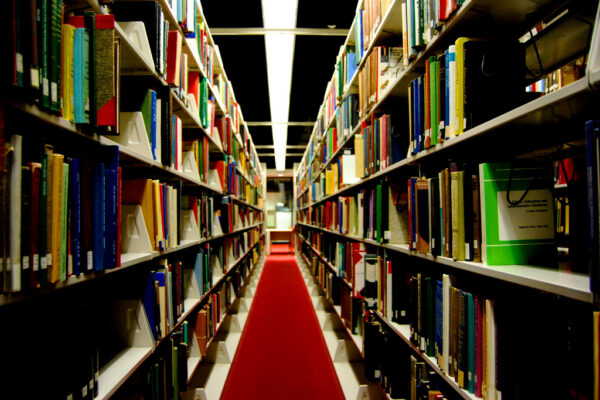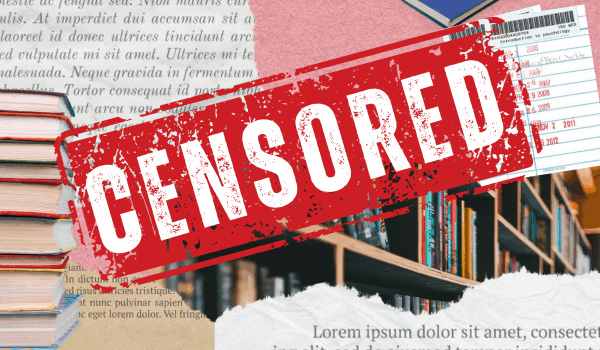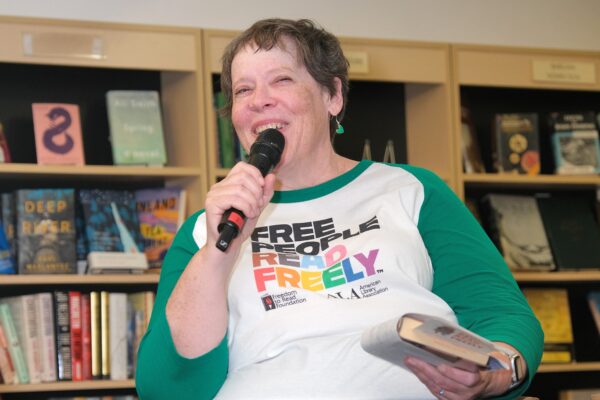In recent years across the nation, we’ve seen a resurgence of systematic attempts to ban books from libraries, classrooms, and curriculums with the aim to undermine experiences across all races, genders, and sexualities. Restricting access to under-represented voices is intended to invalidate marginalized identities and has no place in a healthy democracy.
Efforts to chill the fundamental right to freely speak, think, read, and write without fear of government reprisal have persisted since the founding of our country, and no matter how overt, they always amount to the same consequence: censorship.
Even though New Jersey has been a national leader in protecting and expanding civil rights following decades of dedicated advocacy by the American Civil Liberties Union of New Jersey and our partners, there have been censorship attempts in towns across the state this year. In February, an attempt to remove books that educate young people on gender and sexuality from the Glen Ridge Public Library drew hundreds, including the ACLU-NJ, to a library board meeting to speak out against censorship efforts. In May, the Bernards Township school board rejected a sociology textbook because it described Michael Brown, a teenager killed by police in Ferguson, Missouri, as an unarmed Black teenager — without mentioning his height or weight. And just this month in Cedar Grove, some community members have called for the removal of “Gender Queer,” an award-winning LGBT+ memoir, from the public library’s shelves. We sent a letter to library leadership urging them to withstand any attempt to ban books in their town and to instead promote the free exchange of ideas.
These are just the latest attempts in our state. When I began as executive director of the ACLU-NJ in 2017, we challenged a book ban in New Jersey prisons that had prohibited incarcerated people from accessing Michelle Alexander’s “The New Jim Crow,” a book that explores the deep roots of racial discrimination and mass incarceration.
These attempts at restricting information are not new to us. The ACLU has successfully challenged censorship since the organization’s founding more than a century ago. In the 1920s, the ACLU supported reproductive rights advocates as they faced censorship for distributing information about birth control. In the 1930s, we challenged a national ban on “Ulysses” by James Joyce. In the 1970s, we argued that the government did not have the power to suppress radio broadcasts of George Carlin’s work. And in the 1990s, we appeared in court to ensure that internet speech was entitled to full First Amendment protection. Through advocacy work that spans decades, the ACLU has been instrumental in challenging bans on dozens of books, including “Howl,” “The Joy of Sex,” the Harry Potter series, “Sophie’s Choice,” and more.
It’s clearer than ever before that the latest censorship attempts are not merely about the works in question, but more so about the identities of those who write them and read them. Of the nearly 1,500 unique titles that have been banned in schools in the last academic year, 26% of them cover LGBTQ+ themes. These bans are part of the coordinated effort by some to dismantle and devalue the lived experience of transgender kids across the country — and it’s no coincidence that there have been over 450 bills introduced throughout the nation attacking trans children.
The dots are more connected than one might think. As states attempt to ban the teaching of critical race theory, it’s no surprise that books like “The 1619 Project” and Ta-Nehisi Coates’ “Between the World and Me” are considered by some to be controversial. And for titles that feature intersectional experiences, the stakes are even higher: One of the most banned books, “All Boys Aren’t Blue,” is a memoir by Black LGBTQIA+ activist George M. Johnson. Restricting access to books — especially ones that cover authentic lived experiences — threatens the identities and lives of our community members.
The opportunity to learn about experiences different than our own is a fundamental part of what allows our state, and our country, to achieve inclusive progress. Engaging with new ideas and beliefs, especially ones that we may disagree with, is an essential part of a thriving democracy. At best, banning books is paternalistic; at worst, it is an attempt to eliminate the civic relevance and undermine the humanity of already marginalized communities — both are damaging to racial and social justice and neither brings us closer to the world we deserve.
Banning books means more than taking them off the shelf: it threatens the very foundation of our democracy. We have a responsibility to learn from our nation’s history, reject discriminatory attacks by prioritizing inclusive policy change, and protect New Jerseyans’ fundamental rights to freely speak, think, read, and write — especially for those who are most vulnerable.
Our democracy depends on a well-informed citizenry. There’s never been a time in our country’s history when less information was better than more. As the right to access information is under attack around the country, New Jersey has an obligation to fight back, and to lead by example in defending it.
This piece was originally published by New Jersey Monitor.





